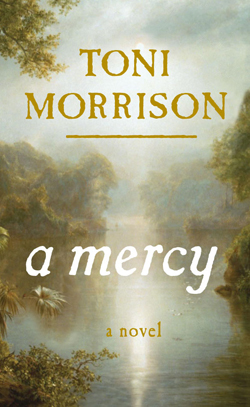 Ghost Radio
Ghost Radio, the debut novel from producer/director/graphic artist Leopoldo Gout, is an enjoyable, easy read, and will strike a chord with those that remember the punk scene of the late 1980s, as well as fans of comic books and the paranormal.
The story involves two boys, Gabriel and Joaquin, brought together by a terrible tragedy in their teenage years. Bound together by this experience, they discover a common love of music. They form an experimental punk band, and during a pirate radio gig in Mexico, another terrible tragedy strikes. Joaquin wakes up in the hospital without Gabriel, and with no memory of how he got there.
After the loss of Gabriel, Joaquin channels his energy toward a radio call-in show he hosts called “Ghost Radio”, where callers talk about their paranormal experiences. Bolstered by his technical producer Watt and his beautiful Goth girlfriend Alondra, Joaquin is doing alright. He’s stable and his show has just been picked up in the States—yet when we join the story, unexplained things have started happening to him, and he is starting to get stuck between the stories his callers tell and reality as he knows it.
I had a good time reading this book. As a punk-loving former teen from the time period, I caught the inside references and recognized the names of the bands, although I actually swung between nostalgia and feeling like the name-dropping was a little heavy. However, I really love the fact that the characters are Mexican, and that the story doesn’t treat Mexico as a Third World country or some exotic locale, but as a legitimate place to live, with a youth culture that both mirrors the United States, yet preserves its own past and history.
Also, the concept of the show “Ghost Radio” is fantastic. The ghost stories woven throughout the narrative are the best parts of the novel. In each one, you can sense the caller’s particular viewpoint, and how confused they feel by their contact with the paranormal. Plus, the stories are just realistic enough that they’re pretty spooky.
However, for all the enjoyment I got out of the first two thirds of the book, the ending was completely confusing. The publisher describes this book by saying that Joaquin “opens the doorway into the paranormal, giving voice to the dead and instigating an epic battle for the souls of the living.” What epic battle? Souls of the living? I don’t know that anyone’s soul was really in jeopardy. Maybe Joaquin’s. It was really hard to tell, though. To me, the novel was like one of those episodes of the old “Twilight Zone” show, where the boundaries between reality and madness/paranormal/aliens/etc. are blurred and weird things start to happen, but the show ends with the main character realizing they’re totally screwed, so you never find out what happens.
Ghost Radio's ending involves radio waves, electricity, the missing Gabriel, some sort of Mayan cult, and perhaps messages from beyond the grave, but depending on your expectations, might leave you a little frustrated, as it did me.
Aside from the disappointing ending and jarring use of multiple perspectives, the novel was still really enjoyable. Also, each chapter is illustrated with Gout’s fantastic drawings. If you like old-fashioned ghost stories and appreciate the Dead Kennedys, you’ll enjoy
Ghost Radio.
---Kimberly Guinta
imagineatrium.com
For more info on Ghost Radio, visit the
Official Site








